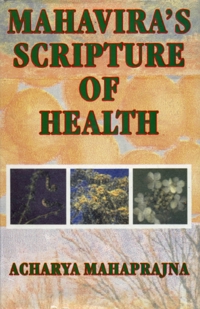Ten stages were shown for a man with a life-span of one hundred years, one stage lasting for ten years. Ten stages and a life-span of one hundred years are given below:
1. | Bala | 6. | Hayinee |
2. | Kreeda | 7. | Prapancha |
3. | Manda | 8. | Pragbhara |
4. | Bal | 9. | Mrinmukhee |
5. | Prajna | 10. | Shayinee |
These are the ten stages. There are varying instincts in each stage. Intensive psychological analysis was done on this subject. How does a person behave in which decade of his life? We have to think about two stages in relation to the child and the aged person. The first is the stage of childhood. The second is the stage of old age. One is the first decade of life, the other is the seventh decade of life.
Labdhi Veerya and Karana Veerya
The stage of childhood begins from the womb. Up to 3 or 4 years from womb it is child, neither the prana is developed nor his capability to function has come into its own. Energy is of two kinds: Labdhi Veerya and Karana Veerya. A child has acquired labdhi veerya but his capacity to function is not fully developed. There is an incident mentioned in the Jain Agamas. There is a dialogue between Keshi Kumara Shravana and Raja Pradeshi on the subject of the soul and the body. Raja Pradeshi said, "If everyone has the same soul, there would be no difference between the working capability of a youth and a child. A youth picks up a bow and after pulling the string, takes the correct aim and shoots the arrow. A child cannot use the arrow. It is clear from this that the child and the youth do not have the same soul". Summing up this argument to Raja Pradeshi, Keshi Kumara Shravana said, "A child does have the labdhi veerya to use the bow, but his capability has not fully developed. That is why he is not able to use the bow. Whereas a youth is able to do it, because his capability to function is already developed".
In the context of health, karana veerya is a significant word. The person, whose karana-veerya has fully developed, can also be alert or careless about his health. A child does develop labdhi veerya but his capability to function is not fully developed. Even a child tries his capability to function. It cannot be said that a child does not have the karana veerya. But it is certain that his karana-veerya is not fully developed. That is why, from the time the child is conceived till his state of childhood, it is necessary to give special attention to his health.
 Acharya Mahaprajna
Acharya Mahaprajna

